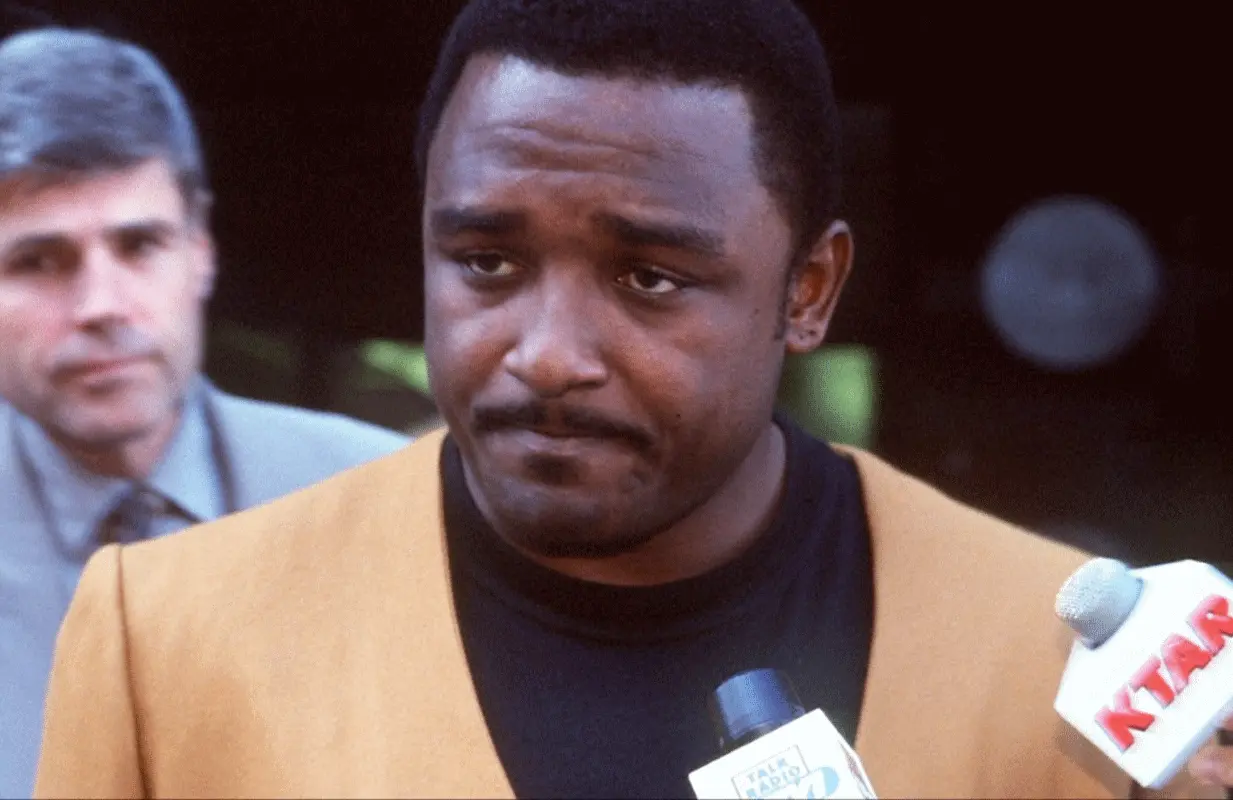Netflix's Bad Sport Is the Perfect Sports Doc/True-Crime Mashup
-
 Stevin "Hedake" Smith, the star point guard at the center of the 1994 Arizona State point-shaving scandal. (Photo: Netflix)
Stevin "Hedake" Smith, the star point guard at the center of the 1994 Arizona State point-shaving scandal. (Photo: Netflix)Netflix subscribers should be forgiven for confusing the service's new sports doc/true-crime mashup Bad Sport with Untold, its weekly sports docuseries that wrapped its first season late last month. On the surface, the two series share much of the same DNA: both purport to offer an inside look at major sports moments, as told by the athletes, coaches, and journalists at their center. Several episodes of Untold even fall under Bad Sport’s true-crime umbrella, including “Crimes and Penalties,” about hockey bad boys the Danbury Thrashers, and “Deal with the Devil,” which tracks professional boxer Christy Martin as she overcomes an abusive relationship and a threat on her life.
Despite these similarities, Bad Sport is best seen as a companion to Untold, rather than a continuation of it. The two docuseries operate as two sides of the same coin: if Untold offers a hopeful perspective on athletes’ inner struggles, Bad Sport looks at the depravity, greed, and narcissism lurking just beneath the surface that proves too powerful for some athletes to overcome.
Like Untold, each episode of Bad Sport serves up a self-contained story about a specific event in sports history. The show's six episodes vary widely in subject matter, with some focused on well-known scandals like the 1994 Arizona State basketball point-shaving scheme, and others on less infamous, and — in some cases — sports-adjacent crimes. Produced by the team behind Don’t F**k With Cats, Bad Sport makes a a number of wise decisions, giving each of its six episodes a unique look and feel to reflect the tone and era of the individual story, and using on-screen graphics to help elucidate more complex concepts. The first episode (“Hoop Schemes”), for example, turns to computer-generated animation to explain how point-shaving works. For viewers with a limited understanding of gambling and sports betting, these make plain the stakes of the scheme and lay out how, exactly, things went wrong.
“Hoop Schemes” is representative of what Bad Sport does well. The episode focuses primarily on the players at the center of the ASU scandal, namely Stevin “Hedake” Smith and Isaac Burton, but it also zooms out to lay bare the real villain in their story: the NCAA, which doled out stipends so insufficient that athletes came to see point-shaving as their only means of survival. “They need to start paying the college kids. They have to,” Burton makes a point of saying at the end of the episode. “Because… it’s gonna happen again.” Sports — particularly college sports — have undergone something of a reckoning in recent years, and it’s smart of Bad Sport to acknowledge this fact.
Given the publicity that surrounded the Arizona State point-shaving scandal at the time, “Hoop Schemes” probably has the most broad appeal of Bad Sport’s six episodes, but the others are equally worthy of a spot in your Netflix queue. Formula 1: Drive to Survive fans will likely get a kick out of “Need For Weed,” which explores professional auto racer Randy Lanier’s multi-million dollar weed smuggling operation. Although it runs about 20 minutes too long, the episode offers an in-depth look at how Lanier used his weed racket to fund his racing team, a crime reflective of the sport’s “don’t look too hard at where the money is coming from” ethos.
Olympics buffs can get their fix with “Gold War,” about the 2002 Winter Games figure skating scandal, while soccer fans will find much to enjoy in “Soccergate,” which tracks the biggest match-fixing scheme in Italian football history. And American viewers who stick around for the final episode will be introduced to South African cricket captain Hansie Cronje and his epic fall from grace.
These aren’t stories of athletes battling mental health struggles or experiencing intense personal turmoil; they’re stories about extraordinary people unable to overcome very human responses to adversity. In Bad Sport, there’s no Untold-style happy ending — only regret for a life and career that could have gone the other way.
All six episodes of Bad Sport premiere on Netflix today, Wednesday, October 6.
Claire Spellberg Lustig is the Senior Editor at Primetimer and a scholar of The View. Follow her on Twitter at @c_spellberg.
TOPICS: Bad Sport, Netflix, Untold